Quick Guide
The Maldives: A Place in the Sun

Editors Note: Maldives has travelled through turbulent times and yet has preserved its beauty and harmonious culture for centuries. Its survival through the rough tides of time is, considered by some, a miracle. The following article was published 44 years ago on 18th June 1967, in The Register-Guard, a daily newspaper published in Eugene, Oregon, United States.
Written by Joe McGowan Jr. of Associate Press, the article portrays the Maldivian life style way before tourism was ever introduced in Maldives. Mr. McGowan speaks of the core values of the Maldivian culture and the major challenges faced by the, then Maldive Islands. You should also be aware that things are currently very different in Maldives and that much of the major health and lifestyle issues have changed through the swift development of the nation.
Tourism, which was first introduced to Maldives 39 years ago in 1972, is mainly responsible for the economic and industrial development of Maldives. We, at Maldives Promotion House are proud to bring to you this artefact lost in time, on the World Tourism Day 2011. Enjoy.
If you’ve been looking for an isolated tropical isle, a place where you can get away from television, city noise, smog, and lung cancer statistics, consider the Maldive Islands.
The Maldives – pronounced as in leaves – have no television, no smog, no income tax, no property tax, no banks, no gas stations, no political parties and no dogs.
If you are tired of your wife, all you have to do is walk to the city square, repeat three times, “I divorce you.” and just like that, instant bachelorhood. Or, if you are so inclined, you can pick up another wife, or as many as four – all at the same time; it is perfectly legal here.
Money doesn’t grow on trees in the Maldives, but you might say it can be picked up along the beaches at low tide. Cowry shells, the home of a type of Mollusk, are found in abundance and they are as good as money.
According to Webster’s, the cowry has been used as money in Africa and some Asiatic Countries. It was the “coin of the realm” in the Maldives for years. According to street corner gossip here in Male, the Maldives capital, two cowries will even today buy a wife in some places in Africa.
All of the above factors should make for a fairly decent place to vacation, if not retire. But there are some substantial drawbacks, among them the fact that the Maldives just aren’t ready for visitors.
A United States government background note on the Maldive Islands rather aptly states, “The Maldivian experience with foreign influence has been limited.”
First of all, it isn’t easy to get to the Maldives, an archipelago of about 2,000 islands with a population of fewer than 100,000 tucked away in the north Indian Ocean. About once a month a chartered Air Ceylon twin-engine plane flies the 400 miles to the Maldives from Colombo, Ceylon, with cargo, mail and perhaps a passenger or two.
The two-hour flight is out for most visitors though, because the Maldivian ambassador in Colombo will, as he put it, “issue a visa only when accommodations are available, and there are no accommodations.” Since the plane returns as quickly as unloading and loading can be completed, there wouldn’t even be time for sightseeing.

The other possibility is by sea, and there are about two sailings a month by small freighters from Colombo. Passengers sleep on the steel cargo hatches, over which canvas is stretched to provide some relief from the burning equatorial Sun or from brief, but furious rain squalls.
I was able to make arrangements with Capt. P. P. Nair of the Ocean Princess, a 2,500 ton British cargo ship under charter to the Maldives, to use the stateroom of a ship’s officer who was on leave and to sleep aboard ship the five nights she would be in Male harbour. In view of this, a visa was issued.
About 30 Maldivian passengers were crowded under the canvas shelter. They had been to Ceylon for university study, technical training, or medical treatment.
Most carried with them bunched of bananas, fresh pineapple and crackers to last them through the 48 hour voyage, although passengers also get rice and tea from the ship’s galley as part of their 90 rupees – $18.90 – fare.
The Maldives lie about 300 miles southwest of India’s Kerala coast.
None of the 2,000 islets, of which about 215 are inhabited, is more than five square miles in area and all are level and low lying, seldom exceeding an elevation of five feet., They would probably be washed out of existence by the periodic typhoons, except that coral reefs make perfect natural break waters.
Little had ever been heard of the Maldives until 1965, when this newly discovered independent country of about 97,000 people surprised the United Nations by asking for membership. It had been a British possession.
The move touched off arguments over admittance of so called “ministries” into the world body. But on Sept. 21, 1965, the Maldives were admitted with a vote equal to that of neighbouring India, with its 500 million people. India, incidentally, adds more people every three days than the total Maldivian population.

Other tiny former colonies such as Guyana and Barbados have been admitted to the United Nations since then, but the Maldives are still the smallest in population and area – 112 square miles.
An elected-for-life-sultan, Mohamed Farid Didi I, is the constitutional monarch. The Didi family has ruled the Maldives for the past eight centuries, even during a brief period in 1953 when the Maldives decided to become a republic and Amin Didi was elected president. The experiment failed and the islands went back to a sultanate, with rule primarily according to ancient Moslem law.
A half dozen families control the wealth and commerce of the Maldives.
One of the most powerful figures is the Prime Minister Ibrahim Nasir, who also has taken for himself the portfolios of foreign affairs, finance – the national treasury is the country’s only bank – education and public safety. With the latter, he controls the Maldivian police and military.
Nasir declined to be interviewed and, in fact never replied to letters mailed two months in advance of this visit, requesting an interview. On the day I arrived in Male, Nasir’s office circulated to all government officials a memo stating, “Should a foreign correspondent ever visit Male, a full report of all information requested and provided shall be furnished to this office.”
Perhaps because of this, all but one Cabinet officer also declined interviews. Justice Minister Ahmed Zaki, an articulate, husky man of 36, proved to be an invaluable and cooperative, though cautious, source of information.
Zaki, wearing a blue slipover shirt with gold studs and gold cufflinks and a blue sarong, talked freely of the Maldives’ problems, aspirations, and Islamic legal system.
“Lashing,” Zaki said, “Is a form of punishment in the Maldives, but this has been reduced to a minimum. It is used today only in religious crimes such as illegitimate births and adultery.”

During the Moslem fasting month of Ramadan last year, three Male businessmen were found guilty of breaking the fast – no food or drink may be taken from sunrise to sunset. Each was given 19 lashes, ordered to fast for two months, and placed under house arrest for six months.
Fines also are levied in the Maldivian courts, but perhaps the most common form of punishment is banishment, especially in the case of crimes of violence. A man may be banished from his atoll for a period of months, or for life.
Justice Minister Zaki admits to many problems confronting his country, but points out the Maldives are just beginning to come into the 20th century. None of the Maldivian judges, for instance, has an internationally recognised law degree. All senior judges, however have studied Islamic law in Cairo.
“For so long we have been isolated that we tend to be less sophisticated.” Zaki said, in explaining how the Maldives have been able to adhere so strictly to Moslem law and tradition. Because of that, no dogs, or pigs may be brought on to the island; no alcoholic beverages are permitted and it has only been recently that tobacco was introduced and the women removed the veil.
Moving pictures also have been introduced – there is one cinema house on Male which operates on Saturday nights – but Zaki isn’t sure this was a good thing.
“Thefts have become more common and there are many quarrels now. Most of the increase has been there past six or seven years since people began seeing movies. They don’t understand the theme ‘crime does not pay.'”
“We are trying to push ahead,” Zaki says in a pensive moment, “We must have our students prepared for the modern world by the time our lives end.”
The Maldives have a very high literacy rate, but unfortunately the medium of instruction has been Dhivehi, the Maldivian language which appears to be a mixture of Sinhalese and Urdu or Arabi.
By law, all parents are required to teach their children to read, write, understand basic arithmetic and recite the Koran.

For the past five years, promising young Maldivians have been sent abroad thanks to scholarships from foreign countries. At present 23 are in Cairo, 2 each in Canada, Russia and New Zealand, a few in Australia and some in Ceylon and India.
Ceylon has sent over one other person, for a job that he must perform only one day a month – standing by a fire extinguisher while the Air Ceylon plane lands and takes off from the airport at Hulhule, a 20 minute boat ride east of Male. Air Ceylon wouldn’t agree to service until there was a trained airport fire fighter on the ground.
Approximately 12,000 people live on Male, giving the island-which is half mile long and a mile wide – one of the highest population densities in the world. Nonetheless they have kept their island unbelievably neat and clean.
The white sand streets are swept clean of any leaves, paper or any other debris. Most of the homes appear freshly white washed and their roofs of corrugated metal, a very popular building material, have rested and weathered to a uniform shade.
Even in the homes of upper-class government officials, the furnishings are sparse and plain. In many homes the bed is a large wooden platform suspended by chains from the ceiling and with no mattress or springs. One man explained that on a hot night you can push a foot against the floor and start the bed swinging, so the sleepers get a breeze.
Each home has its own well, with water coming from a depth of only four feet. The water table is kept by the 100 to 150 inches of rain which falls each year.
This ready availability of water is behind much of the severe health problem in the Maldives, explains Manickavasager Sathianathan, Ceylonese doctor assigned here by the World Health Organisation.
“Human waste is placed in the soil not far from the wells,” he explains, and with the sandy soil and heavy rainfall, the wells are contaminated. As a result there are periodic typhoid epidemics and chronic intestinal diseases.
Malarial mosquitoes also breed in the uncovered wells. Sathianathan said an anti malaria pilot project was begun in 1965 on Male atoll. Up to 5 percent of the blood samples taken showed malaria parasites and he estimates the infection is up to 25 percent on the outer islands.
More than 5 percent of the people have tuberculosis. There are 300 known lepers and a number of other tropical diseases have been found.

Sathianathan says the various health hazards and a severe shortage of milk combine to produce a tragically high infant mortality rate. There is only one cow on Male and no milk for those on the outer islands.
The Maldivians appear to be of Aryan decent with some mixture of Arab and South Indian blood. They are generally small and wiry, with the average height of men being 5 feet 2. The women are attractive – some very pretty – and lighter, probably because they stay out of the sun.
Fishing is the basic industry and about 3,500 tons of Maldivian fish are exported each year to Ceylon.
All commerce is carried on by the Maldivian National Trading Corp., through an office in Ceylon. Male is virtually a free port, and the government shops are stocked with Swiss watches, English bicycles, and Japanese cameras and transistor radios.
One shopkeeper had for sale a 1905 King Edward VII gold sovereign and a bar of silver from “his majesty’s Mint, Bombay.”
It isn’t easy for a visitor to do any shopping in Male, however, because this one, at least, never found a legal way to obtain Maldivian rupees.
The post office, whose colourful postage stamps are a big foreign exchange earner for the Maldives, refuse to accept United States dollars or Ceylon rupees. Custom officers who requested payment for a departure tax, finally decided not to collect the tax when given a choice of dollars or Ceylon rupees. One businessman finally was found who would exchange Maldivian rupees for Ceylon rupees.
The women appear to have two purposes in life, boiling fish and having children. Few people interviewed here had a family smaller than seven children. One official said he understood the birth rate was 57 per 1,000, which would rank the Maldives well above India.
Justice Minister Zaki said that as a general rule, males marry at 16, and “girls seldom before 13.”
Featured
Essential packing guide for your dream Maldives vacation

Make the most of your Maldivian adventure with these must-pack items
The Maldives, a tropical paradise in the Indian Ocean, is a dream destination for travellers seeking crystal-clear turquoise waters, white sandy beaches, and overwater bungalows. With a picture-perfect setting and countless activities to enjoy, it’s essential to pack smart to make the most of your Maldives getaway. This packing guide will help you ensure you have everything you need for an unforgettable vacation.
Lightweight and Breathable Clothing
The Maldives boasts a tropical climate with temperatures averaging between 25 and 30 degrees Celsius throughout the year. Pack lightweight, breathable clothing to stay cool and comfortable. Opt for loose-fitting cotton or linen garments, such as sundresses, shorts, and short-sleeved shirts. Don’t forget a light shawl or wrap for cooler evenings and a swimsuit cover-up for lounging by the pool or on the beach.
Swimwear and Snorkeling Gear
With stunning coral reefs and an abundance of marine life, the Maldives is a snorkelling and diving paradise. Pack at least two swimsuits to ensure you always have a dry option. If you have your snorkelling gear, bring it along to save on rental costs and ensure a perfect fit. Alternatively, you can rent equipment at your resort or dive centre.
Sun Protection
The Maldivian sun can be intense, making sun protection a top priority. Bring a wide-brimmed hat, sunglasses with UV protection, and a high SPF, water-resistant sunscreen to shield your skin. Don’t forget lip balm with SPF to protect your lips from sunburn, too.
Waterproof Footwear
With so many water-based activities, waterproof footwear is essential. Pack a pair of flip-flops or water shoes for the beach, pool, and navigating wet surfaces. Additionally, bring a pair of comfortable sandals or sneakers for exploring the islands and enjoying other activities.
Insect Repellent and After-Bite
Tropical destinations often come with pesky insects, so pack an effective insect repellent to ward off mosquitoes and other bugs. Choose a repellent with DEET or a natural alternative like lemon eucalyptus oil. It’s also a good idea to pack an after-bite treatment in case you do get bitten.
Travel Adapter and Power Bank
The Maldives uses a type D and G plug with a voltage of 230V and a frequency of 50Hz. Pack a universal travel adapter to keep your devices charged. Additionally, bring a portable power bank to ensure your phone and camera are always ready to capture your Maldives memories.
Reusable Water Bottle and Tote Bag
Embrace sustainable travel by packing a reusable water bottle and tote bag. Many resorts offer filtered water stations to refill your bottle, helping to reduce plastic waste. A reusable tote bag is perfect for carrying your essentials while exploring the islands or shopping for souvenirs.
Waterproof Camera or Phone Case
Capture the beauty of the Maldives, both above and below the water, by investing in a waterproof camera or phone case. This will allow you to take stunning underwater photos and videos while snorkelling or diving without risking damage to your device.
Light Entertainment
While the Maldives offers plenty of activities, you may also want to relax and unwind. Pack a good book, download movies or shows on your tablet, or bring a travel-sized game for those leisurely moments.
Travel Insurance
Last but not least, don’t forget to purchase comprehensive travel insurance before your trip. This will provide peace of mind and cover unexpected events such as medical emergencies, lost luggage, or trip cancellations.
A trip to the Maldives promises an idyllic and unforgettable experience. By packing the right essentials, such as lightweight clothing, swimwear, sun protection, comfortable footwear, snorkeling gear, and beach accessories, travelers can make the most of their time in this tropical paradise. Additionally, respecting local customs and traditions adds to the overall enjoyment of the trip. So, be prepared, relax, and soak in the natural beauty of the Maldives.
Photo: adventureswithluda.com
Featured
Five hidden gems of Waldorf Astoria Maldives Ithaafushi

Waldorf Astoria Maldives Ithaafushi opened in July to great acclaim for its breathtaking views, myriad dining options and glorious seascapes. But there’s a lot more to this property than an aerial view can reveal.
To give you a peek at the full range of the hotel’s features, we asked five property insiders for their tips about the luxuries that aren’t apparent just by looking at photos. Read on to discover the true hidden secrets of the Waldorf Astoria Maldives Ithaafushi.
Haircut on the beach?
Personal concierge service is a signature of the Waldorf Astoria brand, but it comes with a Maldivian upgrade here.
Dino Michael, the Global Head of Waldorf Astoria Hotels & Resorts, says “every aspect of your stay is cared for” – from intimate private dinners to, yes, a haircut on the sand (this was an actual request). “I am confident to say that the personal concierge at Waldorf Astoria Maldives Ithaafushi strongly sets us apart in the luxury hospitality space,” Michael says, because the team demonstrates “a passion for guests that is truly remarkable.”
Personal concierges are available to help you 24/7, and they are well-versed on all that the property and surrounding area has to offer. They can tell you where to go for prime snorkelling, can book spa services for you, make dinner reservations and so much more.

Become Robinson Crusoe
Board the property’s private yacht and set sail to explore a nearby sandbank. Here, guests can arrange for a secluded dinner paired with stunning Maldivian sunset views, unwind with a yoga session or snorkel in the surrounding water.
Daniel Welk, the Vice President, Luxury and Lifestyle Group, Hilton Asia Pacific, says that there is an “abundance of marine life surrounding the sandbank, providing guests with an amazing snorkelling experience. I’ve been lucky enough to visit the sandbank by myself and being the only person on the island provides a true Robinson Crusoe-like experience.”

Taste the world from treetops and beyond
Waldorf Astoria Maldives Ithaafushi is home to 11 distinct dining venues. You can literally dine amongst the treetops in private bamboo pods at Terra, sample Peking duck inspired by Shanghainese noble residences at Li Long and order authentic Middle Eastern flatbreads and dishes at Yasmeen. If you’re in the mood for barbecue, head to The Ledge, which is a restaurant partnership between the resort and world-renowned chef and mastermind behind Singapore’s Michelin-starred Burnt Ends, Dave Pynt.
But if you want to eat like Chef Vijay, the Culinary Director at the Waldorf Astoria Maldives Ithaafushi, he recommends reserving a table at Glow. This interactive, garden-to-table restaurant set in a greenhouse-like structure serves creative-yet-healthy fare cultivated from the hotel’s grounds and herb garden.
Chef Vijay said, “the garden features around 20 types of herbs and fruit plants, including coriander, curry leaves and olive trees and is the first thing guests see when they walk into the restaurant, providing an immersive prelude to the dining experience.”

A true sanctuary
It is getting harder and harder to set your out-of-office reply and resist the temptation to check in back at home. But according to Alan Watts, the President of Hilton Asia Pacific, that all changes once you check in at the Waldorf Maldives. He describes the property as “very much a sanctuary from the hustle and bustle of life” and says that he can easily relax “to the calming sound of the rising and falling waves and the salty smell of the Maldivian sea air.”
He recommends checking out the five pools, dedicated spa villa and colorful marine life and leaving your phone in the room (once you’ve captured your photos to make friends jealous).
“There is no other place I would be for a much-needed vacation with the family as we get to spend undisturbed quality time with each other,” he said.

View the stars from a private villa
The Waldorf Astoria Maldives Ithaafushi is on a private island, so chances are you won’t often be surrounded by fellow vacationers. However, if you’re seeking a truly secluded getaway, consider booking a Stella Maris Ocean Villa. These two villas are separated from the main resort and accessible only by boat.
Looking down on the resort from above is stunning enough. Looking up at the stars from the roof of your private villa, though – with the waves lapping the shores around you – is a transcendent experience.
Etienne Dalancon, the General Manager of the Waldorf Astoria Maldives Ithaafushi, says these villas are perfect for a private viewing of the stars.
“One thing I’d love to do if I were a guest, is to turn off all the lights in the villa at night, go to the upper floor terrace and look up at the stars. The experience is incredibly intimate and personal, made possible because of the exquisite exclusivity of each villa which allows guests to completely disconnect from the outside world,” he said.

The all-villa Waldorf Astoria Maldives Ithaafushi spans across three private islands, providing secluded enclaves and a tranquil escape for discerning travellers complete with a plethora of activities for guests of all generations.
Waldorf Astoria Maldives Ithaafushi offers a sophisticated and serene retreat just 30-minutes from Velana International Airport via the resort’s private yacht. An escape or families and couples in search of space and exclusivity, the resort boasts 122 luxuriously appointed villas, each equipped with a pool and uninterrupted views of the Indian Ocean in its own private enclave. Each reef, beach and overwater villa opens onto an indoor and outdoor deck featuring a swinging daybed, dining gazebo, an infinity pool, in-water lounge and an outdoor shower.
In line with Waldorf Astoria’s legacy of culinary expertise, Waldorf Astoria Maldives Ithaafushi offers 11 exceptional, specialty-dining venues. Each venue delivers distinctive, immersive dining experiences – the variety of which is a first in the Maldives. Guests can enjoy an elevated treetop-dining concept at Terra, featuring spectacular views of the ocean and horizon, as well as exquisite food and wine pairings in a tranquil setting seemingly chiselled out of the face of a boulder at The Rock. Yasmeen boasts authentic Middle Eastern flatbreads and mezzes, impeccably prepared crispy Peking duck fresh out of the first wood-fired oven in the Maldives, and embracing the garden-to-table concept, Glow serves healthy and holistic cuisine made from the freshest ingredients harvested from the resort’s herb garden.
To further elevate Waldorf Astoria Maldives Ithaafushi’s culinary offerings, the resort has launched an exclusive barbecue grill restaurant, The Ledge by Dave Pynt. Chef Dave Pynt is the culinary mastermind behind Singapore’s Burnt Ends restaurant, which has been awarded one Michelin star and most recently ranked No. 10 on the San Pellegrino Asia’s 50 Best Restaurants List 2019.
For those seeking the ultimate in exclusivity, the Ithaafushi Private Island features a two-bedroom overwater villa as well as a three-bedroom beach villa. The 32,000 square foot island sanctuary – accessible by yacht – comes complete with a dedicated chef and personal concierge team, as well as its own spa, gym, five swimming pools, entertainment centre and pristine beaches. Two Stella Maris Ocean Villas, inspired by a celestial charm – accessible only by boat – also allow discerning guests to enjoy unrivalled privacy. Floor-to-ceiling windows, chef service, a jacuzzi and direct ocean access make for an unforgettable and memorable escape.
For additional pampering, guests can visit the Waldorf Astoria Spa, comprised of ten idyllic overwater or garden treatment villas, which offers an extensive menu of treatments and Asian-inspired therapies focusing on relaxation and rebalance. The Waldorf Astoria Young Discovery Park, a water park for young guests, and the Lagoon Pool, are ideal for families looking to enjoy a variety of activities with ease. Other facilities include the beachfront, 40-meter Mirror Pool; the Ocean Pavilion, which hosts a range of wellness activities; a fully-equipped fitness centre; and a combined water sport and PADI dive centre.
Quick Guide
Happy Independence Day!
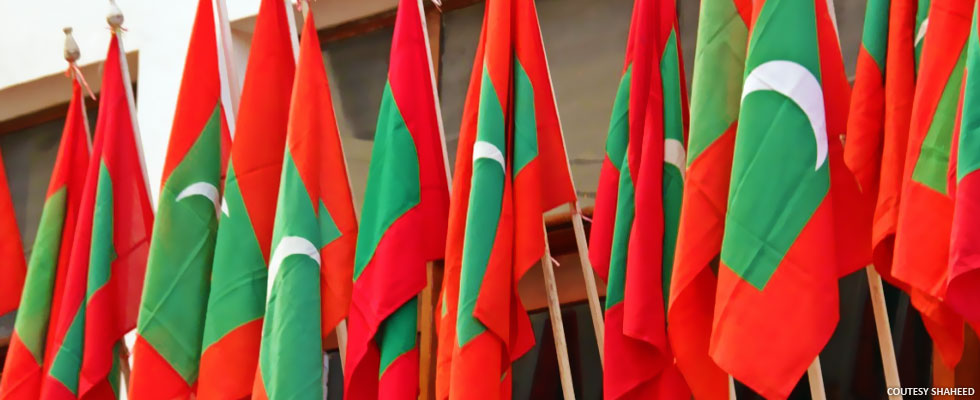
 Maldives.net.mv – After a long 78 years of being a British Protectorate, on 26th July 1965 Maldives was granted full independence from the British. To celebrate this independence, the Republic of Maldives, marks the 26th of July and declares it a public holiday. This is the 49th anniversary of independence for Maldives.
Maldives.net.mv – After a long 78 years of being a British Protectorate, on 26th July 1965 Maldives was granted full independence from the British. To celebrate this independence, the Republic of Maldives, marks the 26th of July and declares it a public holiday. This is the 49th anniversary of independence for Maldives.
Although governed as an independent Islamic sultanate from 1153 to 1968, the Maldives was a British protectorate from 1887 until 25 July 1965. On December 16, 1887, the Sultan of the Maldives signed a contract with the British Governor of Ceylon turning the Maldives into a British protectorate, losing her sovereignty in matters of foreign policy.
The British government promised the Maldives military protection and non-interference in local administration in exchange for an annual tribute paid by the Maldives. In 1957 the British established a RAF base in the strategic southernmost atoll of Addu, where hundreds of locals were employed. Fiscal feasibility in question, 19 years later the British government decided to give up the base, as it was too expensive to maintain
In 1953, there was a brief, abortive attempt to form a republic, but the sultanate was re-imposed. In 1959, objecting to Nasir’s centralism, the inhabitants of the three southernmost atolls protested against the government. They formed the United Suvadive Republic and elected Abdullah Afeef as president and Hithadhoo as capital of this republic.
The agreement giving the Maldives full political independence was signed on behalf of His Majesty the Sultan by Ibrahim Nasir Rannabandeyri Kilegefan, Prime Minister; and on behalf of Her Majesty the Queen by Sir Michael Walker, British Ambassador designate to the Maldive Islands. The Ceremony took place at the British High Commissioner’s Residence in Colombo on 26 July 1965. After independence from Britain in 1965, the sultanate continued to operate for another three years under King Muhammad Fareed Didi.
On 11 November 1968, the monarchy was abolished and replaced by a republic under the presidency of Ibrahim Nasir, although this was a cosmetic change without any significant alteration in the structures of government. The official name of the country was changed from Maldive Islands to the Maldives. Tourism began to be developed on the archipelago by the beginning of the 1970s. The first accurate census was held in December 1977 and showed 142,832 persons residing in Maldives.
-
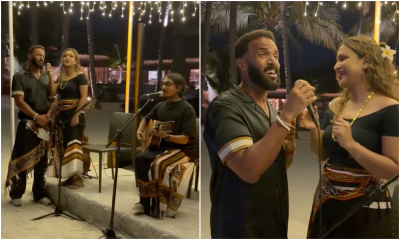
 Entertainment1 week ago
Entertainment1 week agoCraig David shares emotional Maldives moment after ‘Rise & Fall’ surprise at resort dinner
-
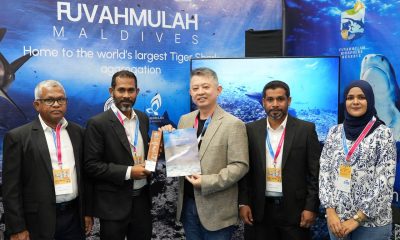
 Awards1 week ago
Awards1 week agoFuvahmulah receives Tiger Shark Dive Award at DRT Expo KL
-
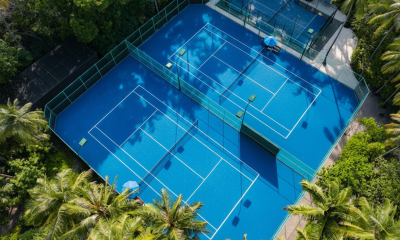
 Action1 week ago
Action1 week agoDusit Thani Maldives adds padel and upgrades sports facilities
-
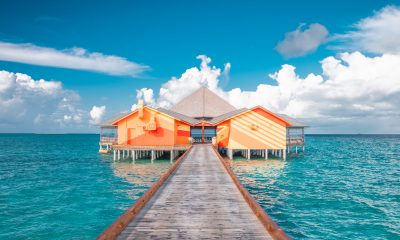
 Cooking1 week ago
Cooking1 week agoONDA debuts at The Standard, Maldives as new Mediterranean dining venue
-
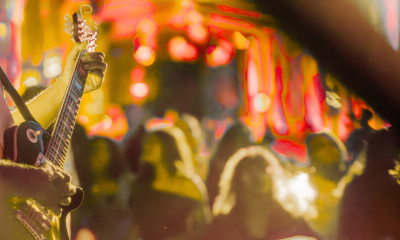
 Love1 week ago
Love1 week agoLunar Beats Festival to bring music, art and celebration to Oaga Art Resort
-
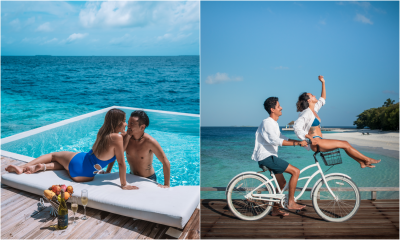
 News1 week ago
News1 week agoAmilla Maldives unveils February programme with Valentine’s Day and Chinese New Year experiences
-
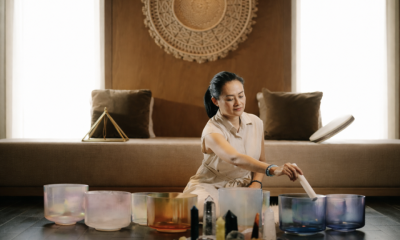
 News6 days ago
News6 days agoThe Ritz-Carlton Maldives, Fari Islands to mark International Women’s Day with ‘Give to Gain’ programme
-
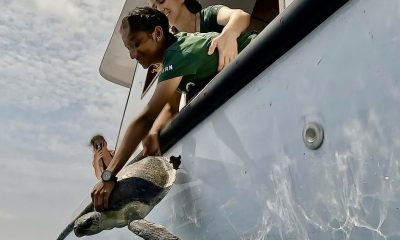
 Featured1 week ago
Featured1 week agoTen years of turtle conservation: Coco Palm Dhuni Kolhu and Olive Ridley Project milestone












